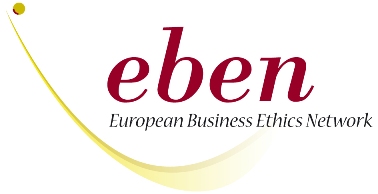2 de enero de 2016 – PFIZER has always prided itself on its commitment to corporate social responsibility (CSR). The drugs giant talks loftily about “embracing our responsibility to society”. It insists that it does as much as it can to make sure that the world’s poor can gain access to its products. It is particularly proud of the work that it does with NGOs and “other global health stakeholders” to strengthen and improve health-care systems.
But this has not deterred it from seeking a gargantuan “tax inversion”. The company intends, as part of a $160 billion takeover of Allergan, to shift its tax domicile from America to Ireland, wher e Allergan is domiciled, and where corporate-income taxes are considerably lower. Pfizer’s shareholders no doubt rejoiced: in 2014 the company would have saved $1 billion of the $3.1 billion it paid to the US Treasury. But many Americans were outraged: Hillary Clinton, the front-runner for the Democratic presidential nomination, promised to impose an “exit tax” on companies that engage in such tactics.
e Allergan is domiciled, and where corporate-income taxes are considerably lower. Pfizer’s shareholders no doubt rejoiced: in 2014 the company would have saved $1 billion of the $3.1 billion it paid to the US Treasury. But many Americans were outraged: Hillary Clinton, the front-runner for the Democratic presidential nomination, promised to impose an “exit tax” on companies that engage in such tactics.
A paper in the January issue of the Accounting Review suggests that Pfizer is far from unusual in trying to perform this pro-CSR, anti-tax straddle. David Guenther of the University of Oregon’s Lundquist College of Business and his co-authors compared the effective tax rates paid by a sample of American firms between 2002 and 2011 with a measure of those companies’ CSR programmes compiled by MSCI, an index provider. It found that the companies which do the most CSR also make the most strenuous efforts to avoid paying tax—and that those with a high CSR score also spend more lobbying on tax.
Mr Guenther and his colleagues suggest two more intriguing explanations. The first is that companies intentionally embrace CSR for exactly the same reason they try to reduce their taxes—to maximise their profits. There is some evidence that companies with large CSR programmes find it easier to attract talented workers (particularly among the millennial generation) and to generate a buzz around their products. Baruch Lev of New York University has found that companies with higher CSR scores have higher revenue growth. Yet the more vigorous companies are in reducing their taxes, the more they destroy any social capital that they have accumulated through CSR. Starbucks recognised how much damage its British operation had done to its reputation when the extent of its tax planning was exposed in 2012, and promised to pay around £10m (then $16m) a year in each of the following two years, whether or not it was profitable.
These rival theories reflect conflicting ideas on what counts as a socially responsible company. The view put forward by various international bodies that seek to set standards for corporate behaviour, and accepted by many big European firms, is that responsible firms should pay a fair share of taxes while privately sponsoring some do-gooding on top of this. The Global Reporting Initiative, which issues guidelines on how companies should report their “sustainability” efforts, recommends that they provide detailed information on their tax payments, since the public wants to know what they are contributing to the sustainability of “a larger economic system”. The UN Global Compact, a body that presses firms to align themselves with universal social goals, encourages them to collaborate with governments and other organisations to “generate more taxes”.
The business of business: discuss
However, many CEOs, particularly in America, take a different view: that the best way for companies to contribute to the common good is to succeed as businesses. Furthermore, they argue, the more money they can keep from the government’s clutches, the more they can invest in new plants (which create jobs in the short term) or research (which creates jobs in the longer term). And the more money they will have left over for good causes as well: thus Intel’s 2011 CSR report stated that the company “believes in promoting tax policies that encourage innovation and competition around the world”, while 3M’s sustainability report for the same year stated that its top public-policy objective was “To make the case for tax reform and lower US corporate-tax rates for a more level global playing field”.
The CEO school of corporate responsibility has something going for it. Such bosses are right to argue that a business’s main contribution to society is to provide jobs and income. They are also right to argue for tax harmonisation: America has only itself to blame if firms revolt against its high corporate-tax rate. But they should recognise that there is a big difference between moving to a place like Ireland because it has made a more sensible trade-off between collecting taxes and promoting business, and indulging in contortions such as the “Double Irish with a Dutch Sandwich”, whose only aim is to avoid paying taxes anywhere. They also need to recognise that there is a big difference between worrying that government is inefficient and pretending that it is irrelevant, and thus that contributing to its upkeep is unnecessary.
